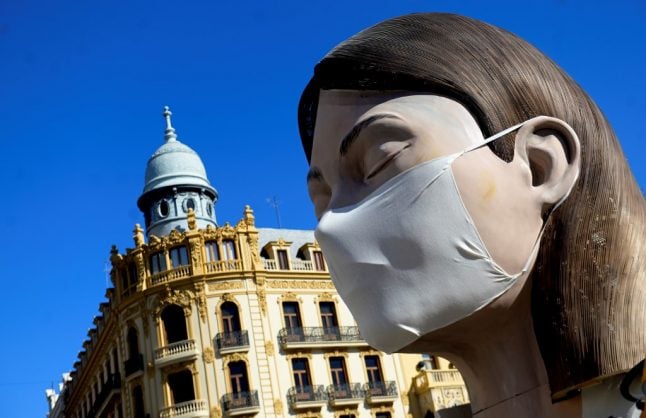Although there is no official lockdown in the capital, schools and public offices are closed, people are being told to work from home, cultural and sporting events are suspended and sports centres, museums and other cultural spaces closed.
A campaign by Madrid's regional health authorities is urging people not to leave the house unless that have to, in order to curb the spread of the virus and not overwhelm the health service which is already at breaking point.
Enfrentar el #coronavirus es responsabilidad de todos. Por ti y por todos #quedateencasa #Coronavirusmadrid #CoronavirusESP #CoronavirusEspaña pic.twitter.com/7YXuymGGhq
— SaludMadrid (@SaludMadrid) March 12, 2020
“This morning, all members of the government will undergo testing,” a government statement said, indicating the results would be published later in the day.
“The minister (Irene Montero) is in a good condition and second deputy prime minister Pablo Iglesias is also in quarantine due to the situation.”

The couple have both been isolated to prevent contagion. Photo: AFP
Montero tested positive on Wednesday evening, three days after appearing at a mass march of some 120,000 people through Madrid for International Women's Day.
Ayer las calles se llenaron de nuevo de una marea violeta que reclamaba igualdad y justicia social.
Entre todas debemos tejer una poderosa alianza feminista ?? pic.twitter.com/pninz8JVn3
— Irene Montero (@IreneMontero) March 9, 2020
A special cabinet meeting to discuss an emergency plan of action to respond to the crisis went ahead around 1200 GMT as planned, with Prime Minister Pedro Sanchez and 14 other ministers, it said.
However, all of Sanchez's upcoming appointments would be conducted by video conference.
Spain has seen the number of infections spiral since the start of the week, becoming one of the worst-hit countries in Europe. Madrid has borne the brunt of the crisis with 1,388 infections and 38 deaths.
The International Women's Day demonstration on Sunday evening took place just hours before health authorities detected a huge spike in infections.
Schools in other regions including Galicia, Catalonia, Murcia and Asturias will be closed from Friday.
LATEST:
- Coronavirus in Spain: Real Madrid quarantined and La Liga fixtures suspended
- Is Spain doing enough to control coronavirus spread?
- Coronavirus in Spain: What's the latest and what do you need to know?



 Please whitelist us to continue reading.
Please whitelist us to continue reading.
Member comments